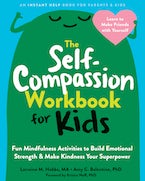Children and teens are not always ready to tackle topics with big emotions. This may show up in therapy sessions in the form of distractions, sleepiness, verbally declining an activity, or even ending the therapy session.
Part of our job as therapists is to help our clients build the capacity to be with difficult experiences in the therapy room. Of course, this starts with attending to our own emotional reactions to their lack of engagement by naming our own emotional response to the situation. Then we can bring compassion to ourselves, remembering that it is challenging for us all to turn toward difficult experiences. We can then help clients turn toward their own inner experience.
Such a practice may look something like this in a therapy session:
Teen: I don’t really care that I didn’t get invited to that party. I didn’t think I would. I really don’t think it helps to talk about it. It was my mom’s idea, anyway, to come to therapy.
Therapist takes a breath and notices a twinge of inadequacy and a drop in her stomach. She reminds herself it is common for teens to back away from uncomfortable topics and big emotions by denying their inner experience or discounting the therapy process. She acknowledges with compassion that it is hard for her too in this moment and notices her urge to shut down, but chooses to move toward her client and her current experience.
Therapist: I hear you doubt the value of talking about your experience. How did it feel to share with me that you didn’t get invited to the party?
Teen: Really bad. That’s why I don’t see the point of talking about it. Anyway, I’ll never have a social life.
Therapist: It sounds like you feel hopeless.
Teen: Yes, that’s it.
By meeting our clients’ reactions to their big emotions with a compassionate presence, we can help even the youngest of clients move toward their own experiences without overwhelm.
Amy C. Balentine, PhD, has practiced for more than twenty years as a clinical psychologist specializing in children and teens. She is founder and director of the Memphis Center for Mindful Living, LLC. She is also a qualified teacher of MBSR; and serves as a mindfulness teacher at the University of California, San Diego Center for Mindfulness.



 2024 Peace Playbook: 3 Tactics to Avoid Clashes with Your Partner
2024 Peace Playbook: 3 Tactics to Avoid Clashes with Your Partner